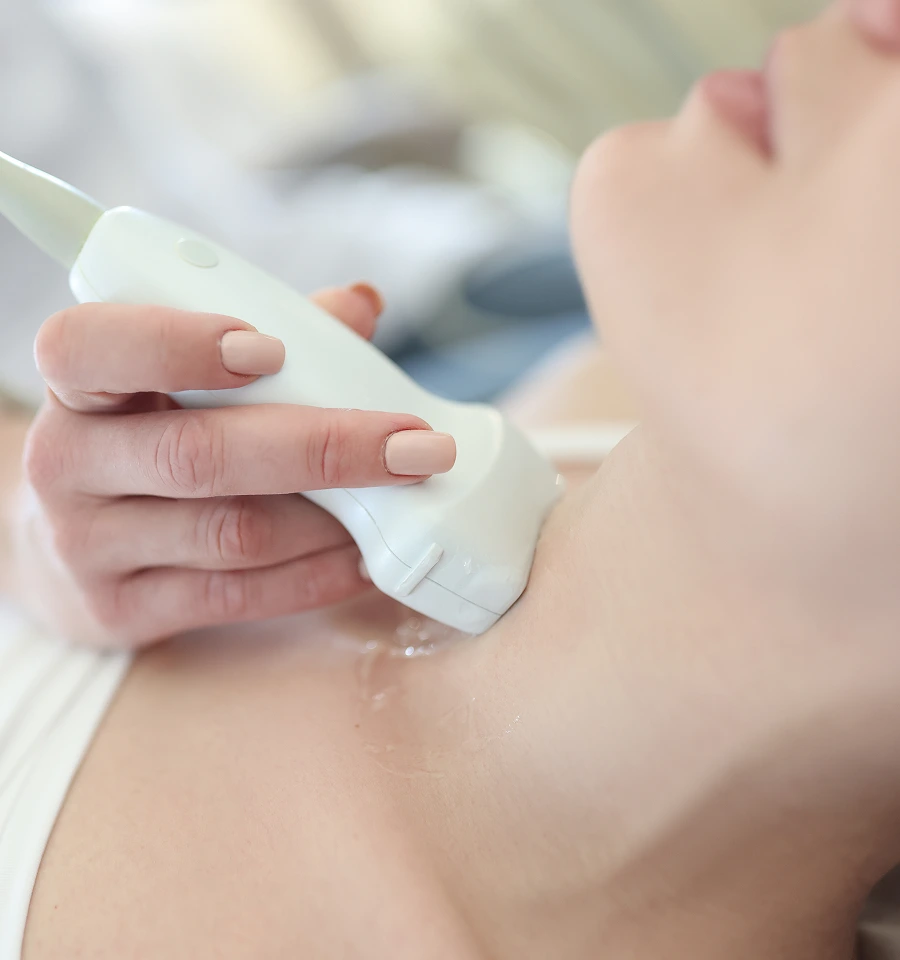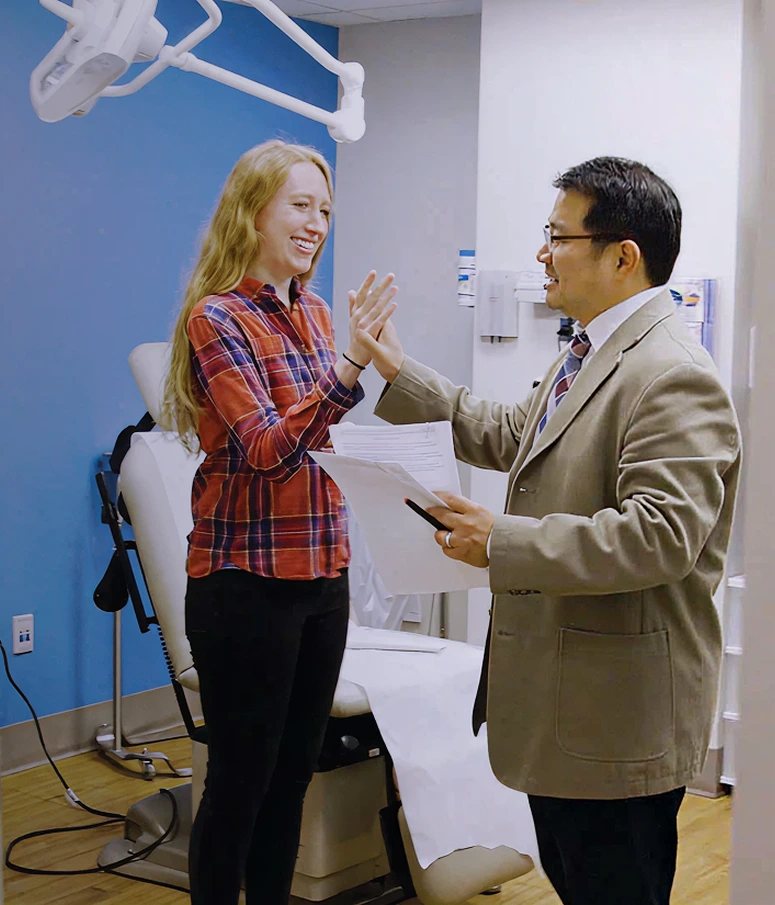Robotic Surgery for Thyroid Conditions

Thyroid nodules affect more than 1 in 5 people—especially women and older adults—making thyroid surgery a common step in long-term care and prevention.
-Dr. Hyunsuk Suh, MD
Featuring Advanced Robotic and Minimally Invasive Approaches
The Bilateral Axillo-Breast Approach (BABA) is a breakthrough in minimally invasive thyroid surgery. This technique allows surgeons to fully leverage robotic technology to meticulously dissect cancerous tissue while preserving vital structures such as the vocal nerves and parathyroid glands, which are essential for voice and calcium regulation.

1.
Personalized Consultation2.
Pre-Op Planning3.
Surgery Day4.
Aftercare and Support1.
Personalized Consultation2.
Pre-Op Planning3.
Surgery Day4.
Aftercare and Support
Recovery after minimally invasive thyroidectomy is generally smooth and well-tolerated, with many patients returning to normal activities within a few weeks. Our advanced techniques are designed to minimize scarring by avoiding large neck incisions, significantly reducing the risk of an unsightly scar. Instead, incisions are placed in discreet areas such as the armpit or chest folds, helping patients heal with greater comfort and confidence in their appearance.
Aftercare Tips:
Aftercare following thyroid surgery includes regular monitoring and support to help replace the function your thyroid previously provided. The primary treatment involves thyroid hormone replacement therapy with medications like levothyroxine, which our care team will carefully adjust based on follow-up blood tests. If the parathyroid glands were affected during surgery, you may experience low calcium levels, requiring calcium supplementation and vitamin D to increase intestinal absorption of calcium and prevent complications like muscle cramps or tingling. Our care team will guide you on appropriate hormone replacement medications, calcium, and vitamin D supplements if needed, and regular follow-up tests to monitor your thyroid hormone levels, calcium levels, and overall recovery.

Understanding who qualifies for thyroidectomy can help patients make informed decisions in collaboration with their healthcare team. Dr. Suh recommends thyroid surgery based on a careful review of symptoms, test results, and medical history. Candidates typically fall into one or more of the following groups:

The cost of thyroidectomy in Atlanta ranges from $6,000 to $14,000, depending on the surgical approach, facility fees, and whether robotic technology is used. While insurance may cover some of the procedure for patients with specific thyroid problems, out-of-pocket costs can vary widely. It’s important to consider that less surgical dissection and advanced techniques may reduce overall treatment time and lead to less postoperative pain, potentially influencing total expenses.
Review your medical history with our experienced surgeons to determine the most appropriate and cost-effective surgical plan.

Risks and Considerations
Thyroid surgery complications are generally low and often temporary:
Our practice stands out due to a rare fusion of visionary leadership and groundbreaking techniques, rooted in a commitment to precision and innovation. Dr. Hyunsuk Suh, a thyroid surgeon trained through a prestigious Endocrine Surgery Fellowship and robotic surgery fellowships across top global institutions, uses his decades of expertise to redefine what surgery can achieve. With a foundation built at Emory University and further refined at Harvard-affiliated Massachusetts General Hospital, his approach transcends conventional methods, pioneering procedures like the bilateral axillo-breast approach (BABA) that push the boundaries of minimally invasive care. Our clinic embodies a seamless blend of research, technical mastery, and patient-centered outcomes. Connect with Dr. Suh and explore your options through a practice where science meets surgical artistry.

Thyroid and parathyroid surgeries are combined when conditions affect calcium physiology and are accompanied by thyroid abnormalities. Because the parathyroid glands are small glands located close to or within the thyroid, surgeons must consider both during certain operations. The length of the incision depends on whether these two glands are involved. A more extensive procedure may require a larger incision to access the thyroid and parathyroids safely.
While the adrenal gland is a separate endocrine organ, it produces essential hormones that help regulate the stress response, blood pressure, and metabolism. Generally, thyroidectomy does not directly affect the adrenal gland. However, we monitor overall endocrine balance since the body’s hormone systems are interconnected.